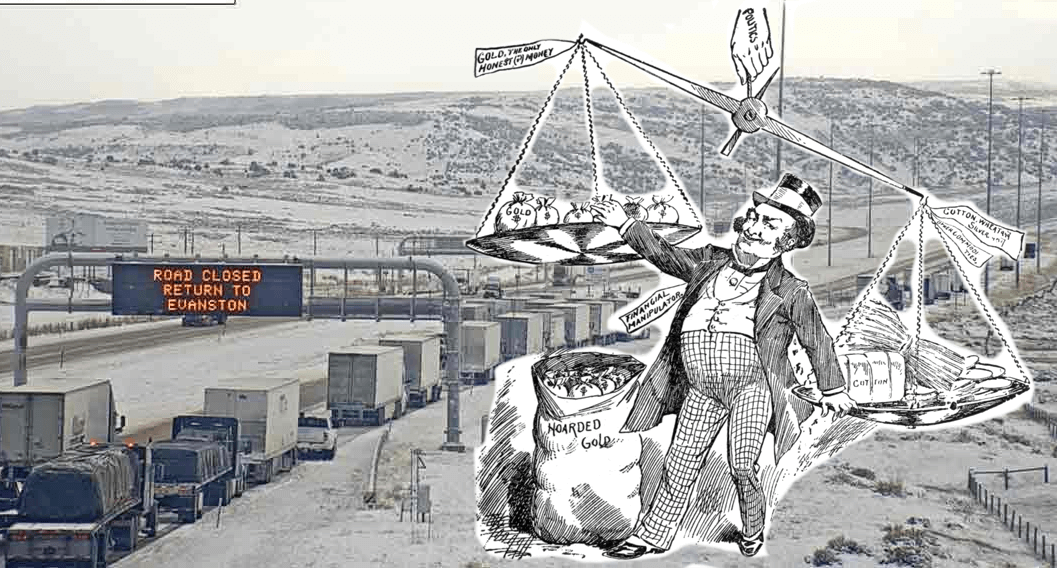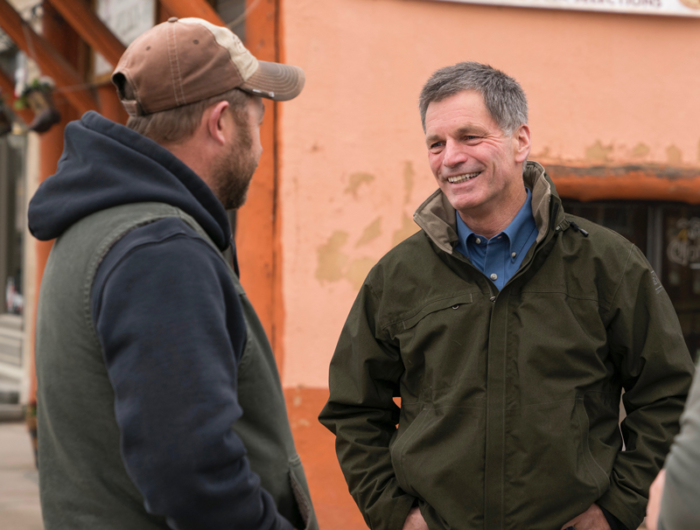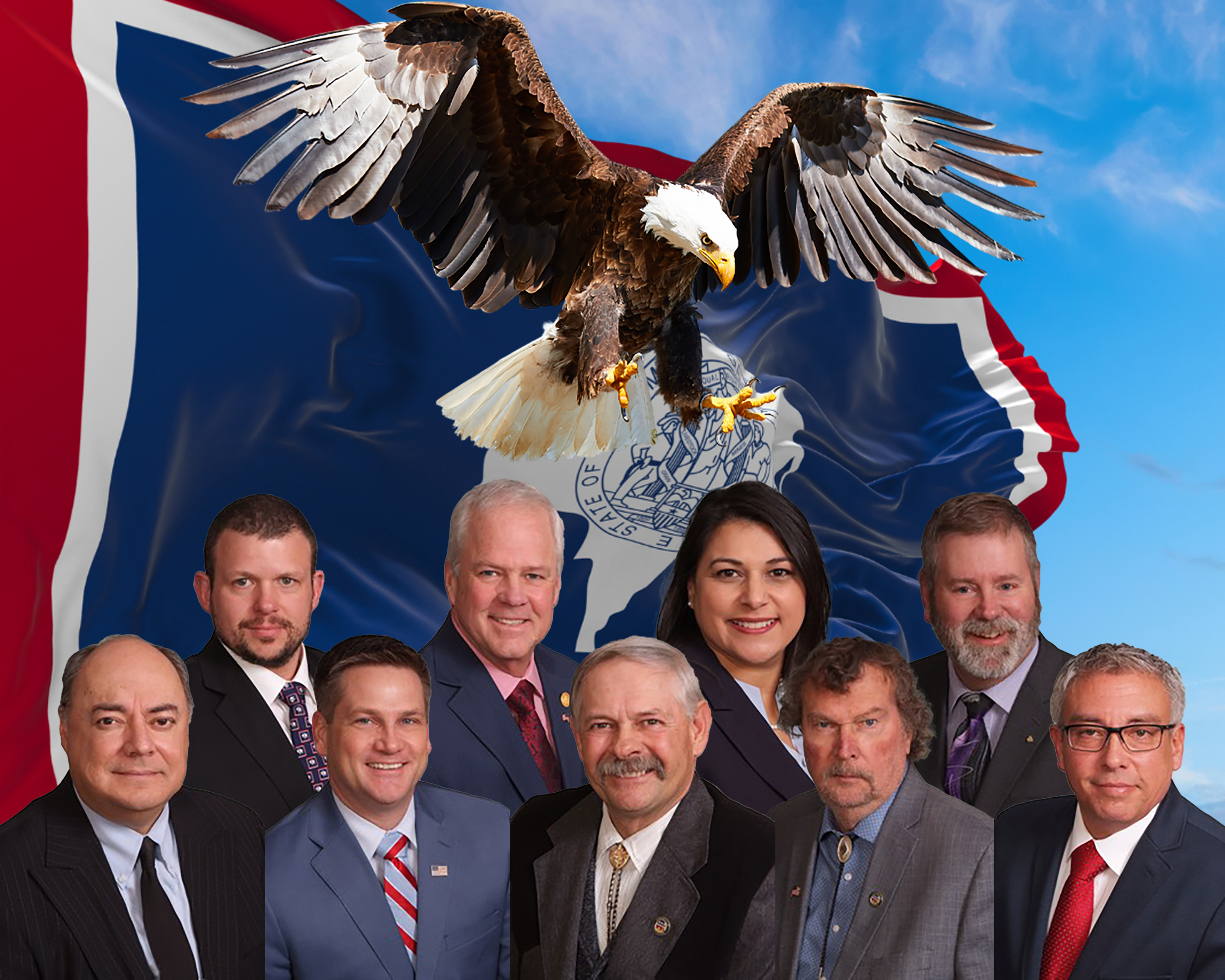Stingy lawmakers leave Wyoming stranded
When you’re stuck in a massive snowstorm on a Wyoming highway this winter—or when you can’t leave your home for days because roads in and out of town are closed—here are a few things to think about while waiting for an underpaid snowplow driver to rescue you.
The Wyoming Legislature put $1.4 billion into savings earlier this year, the largest deposit like that in the state’s history.
Despite the state’s tremendous wealth, the Legislature refuses to provide WYDOT with the resources it needs to pay competitive wages.
Wyoming’s “rainy day fund” is the richest in the nation, topping $2 billion.
Looking ahead, the state’s fiscal picture is bright as the Legislature prepares for its budget session in February. Thanks to an uptick in tax revenue from the oil and gas industries, lawmakers will have a $178 million surplus on their hands.
In fact, economists project that Wyoming can expect $870 million in surplus funds through 2026.
But the reason you’re likely stranded and waiting for the roads to open is that the Wyoming Department of Transportation (WYDOT) cannot hire enough snowplow drivers to keep up with the weather.
That’s because, despite the state’s tremendous wealth, the Wyoming Legislature refuses to provide WYDOT with the resources it needs to pay competitive wages.
According to Cody Beers, a WYDOT spokesman, 61 of the agency’s 450 full-time snowplow driver positions are vacant going into the 2023-24 winter. On top of that, 31 of 50 temporary driver positions are empty.
Beers said that many people with the skills required to drive a snowplow can find better pay in the private sector—especially in the oil and gas industry.
Meanwhile, facing a snowplow driver shortage of its own, Colorado is pulling drivers away from Wyoming with its higher pay, incentives, and benefits.
It’s true that Wyoming residents prefer limited government. But only scorched-earth anarchists think that keeping the roads clear of snow is not a basic public service that people should expect in 2023.
Wyoming has the resources and the wherewithal to keep you from being stranded this winter. Unfortunately, the Legislature prefers to hoard its wealth instead of paying competitive wages to state employees so that you can get to where you need to go.
An investment in the state’s economy
Tammy Johnson has seen the Legislature fail to adequately pay state workers for years. The executive director of Wyoming AFL-CIO told Better Wyoming that, in her experience, lawmakers tend to view their job as “cutting corners and saving money” instead of making strategic investments for the state.

“If you want to have qualified, available snowplow drivers, then you need to look at them as an investment in the state,” Johnson said. “If you want to have clear roads, you need to pay the going rate.”
In fact, paying for snow removal is an investment in the state’s economy. Ensuring that people and goods can travel safely and efficiently across Wyoming keeps businesses functioning smoothly.
It’s important to the U.S. economy, as well, especially since Interstate 80—which is often closed through Wyoming—is one of the nation’s most important shipping corridors.
According to the National Transportation Research Nonprofit (TRIP), $68 billion in goods move to and from Wyoming each year. But poor travel conditions threaten this industry.
University of Wyoming economist Anne Alexander has pointed to I-80’s closure near Elk Mountain as a considerable problem to commerce. She said keeping it open could have more than a billion-dollar impact.
In addition to trucking and shipping, road closures and dangerous travel hurt other types of business, too, by preventing people from getting to where they need to be during Wyoming’s long winter.
Paying higher wages to snowplow drivers so that WYDOT can more easily attract and retain workers would be a valuable asset for our state.
Below market rate
Some policymakers in Wyoming have recognized that paying snowplow drivers too little hurts both travelers and business. But they have done little about it.

Gov. Mark Gordon acknowledged WYDOT’s needs when he told a joint legislative session in 2022 that his top priority was market salary increases for state employees.
“I regard this as critical to the functioning of our state enterprise,” he said. “From our troopers, snowplow drivers, social workers and others, Wyoming is struggling to staff the very agencies that provide the services that the people of Wyoming need.”
In turn, the Legislature increased starting pay for WYDOT snowplow drivers by 83 cents per hour, bringing them up to $18.14 an hour. The average hourly wage is $22.67, according to ZipRecruiter, or about $47,000 a year.
“Wyoming is struggling to staff the very agencies that provide the services that the people of Wyoming need.”
But some private companies in Wyoming are advertising up to $30 per hour for snowplow drivers, or about $62,400 a year, making WYDOT wages far below market rate in the state.
In addition, Colorado state snowplow drivers can expect $44,000 as a base salary just to start, but that can bump up to at least $52,000 with overtime, on-call pay, and performance bonuses.
Colorado is also paying up to $1,000 monthly rent subsidies for drivers in areas with housing shortages, and its transportation department is building housing to attract drivers where positions have been difficult to fill.
Wyoming does neither.
As a result, Colorado’s Department of Transportation is looking forward to fewer staffing challenges this winter, while Wyomingites can expect just as many closed roads as last year.
When the Legislature convenes in February to create the state’s next two-year budget, it will do so with a significant surplus of funds that could address this problem. The state’s residents can wait and see whether lawmakers will do right by state employees and increase snowplow driver pay, or if their stinginess will leave us stranded.






